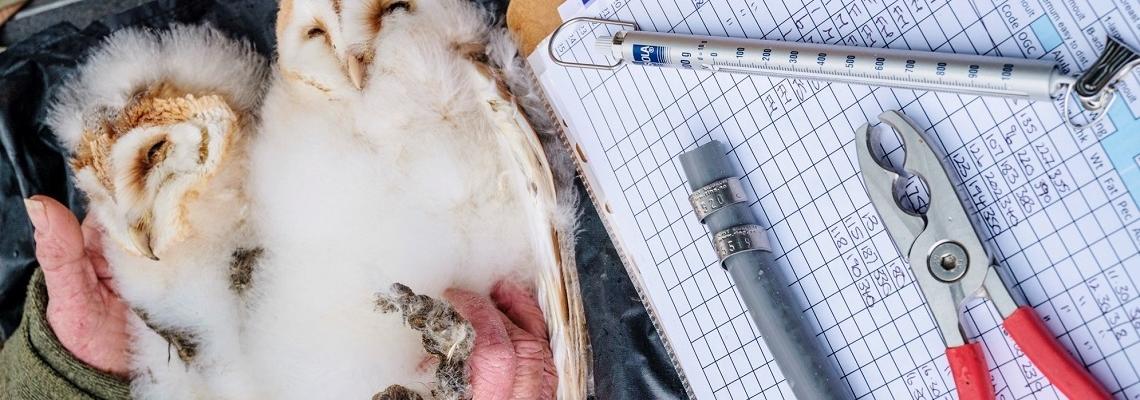Barn Owl Chicks Hatch Out in Our Nest Boxes
We are helping to rebuild wild barn owl populations with the help of artificial nest boxes which have been put up around the estate.

Since 2006 a total of 38 owlets have successfully fledged on our Oxfordshire estate, with another seven hatching out this year.
As part of the nest box scheme, each of the chicks is weighed, measured and ringed soon after hatching as a way to monitor the health of the local population.
Up to 80 per cent of barn owls are now believed to use man-made nest boxes as their natural nesting sites in old buildings and trees are becoming increasingly rare.
Alison Bunning, regional ambassador for the British Trust for Ornithology and part of Barn Owl Conservation Oxfordshire, undertakes the ringing work here.
“When the BTO started ringing about 100 years ago it was to discover the movement and dispersal of birds,” she said.
“Now it is more about survival rates, longevity and a smaller degree movement. We rely on the birds being recaptured and then look at the data of when they were initially ringed.
“This works particularly well with barn owls being a nocturnal bird, as we are unlikely to see them in a daytime survey. The owls by going to a provided nest box can then be monitored for their progress and more importantly, if they are surviving.
“The Barn Owl is a very good indicator that the habitat in an area is good. The Blenheim Estate and surrounding farms have plenty of open fields with hedgerows which is great for the conservation of all nature.
“Blenheim has really taken on board the idea of nest boxes being the way forward to help the owls and I foresee the population in this area steadily growing over the next few years,” she added.
Up until the 1980s the barn owl population in the UK had been in a steep decline with only 4,500 breeding pairs recorded across the country. Today there are more than three times that number and signs are good the recovery will continue.
“Protecting barn owls is not only important for their individual survival, it also helps to conserve and look after the wider ecosystem on the estate,” said our Head of Estates, Rachel Furness-Smith.
“By providing these amazing birds with a safe place to lay their eggs and hatch their chicks we can ensure their long-term survival for future generations to enjoy and experience,” she added.
The Nest Box scheme is part of our wider commitment to developing our ‘natural capital’.
Natural Capital is a radical new model, which assigns importance to precious resources, like good air, water, soil, woodland, green spaces and biodiversity, in order to promote the best long-term decisions.